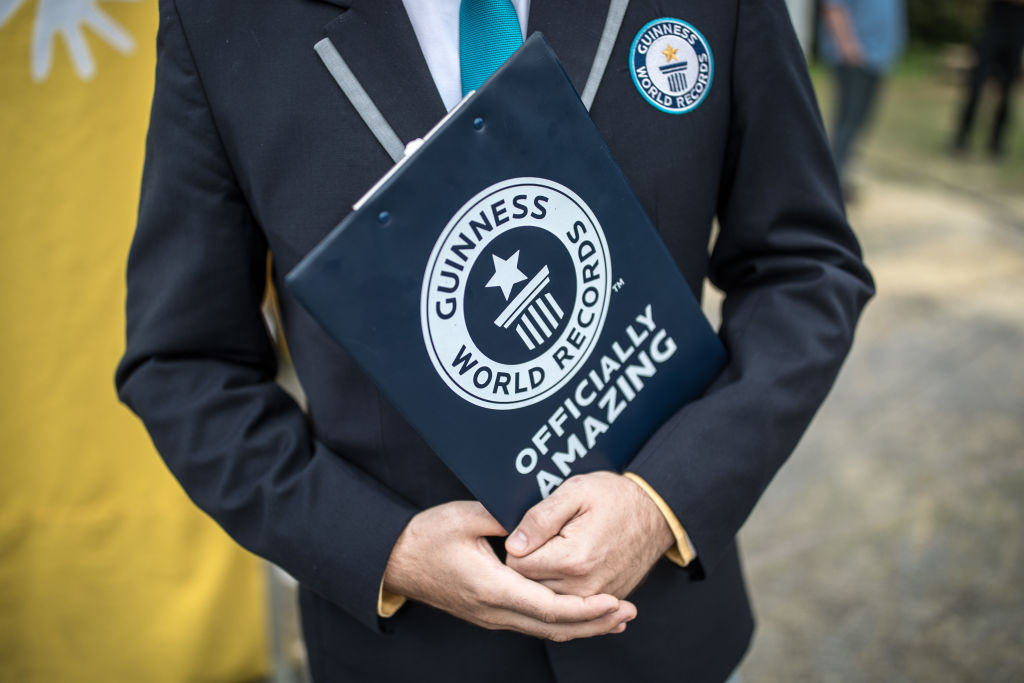Ashgabat, the capital of Turkmenistan, looks like a strange place. Pristine white structures tower over four-lane motorways, while marble walls, teal windows and golden roofs glisten under the desert sun. It’s striking, I’ll admit, the architecture not to my taste but beautiful in a rather decadent sense. What is strangest about Ashgabat, however, looking on from afar (visas to Turkmenistan are notoriously difficult to obtain) is the sheer lack of people that seem to live there. They do – the city’s population is nearly one million – and yet in every photo Ashgabat looks abandoned.
Weirder still, it looks like it was designed to be this way.
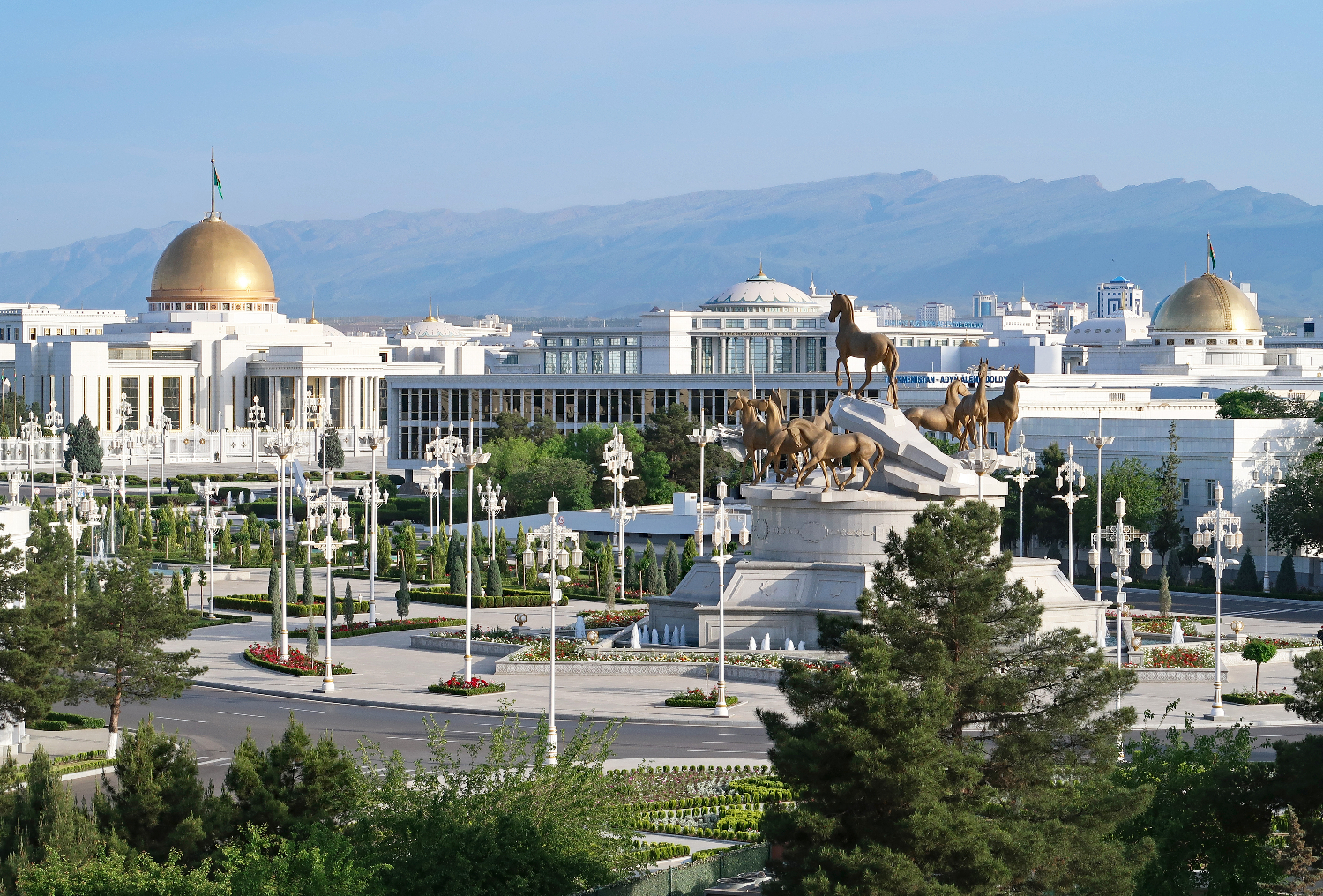
In a sense, it was. Since the fall of the Soviet Union, the Turkmen government has been on a “beautification campaign”, rebuilding the country in their own vision. The leaders of the new, (semi-)autonomous state of Turkmenistan have been incredibly popular, typically winning 100 per cent of the vote, but stratospheric popularity (or, just maybe, the ability to rig a referendum and develop a total cult of personality that is well-worth reading about in its own right) is not all Turkmen presidents have been renowned for.
Because this lot bloody love a Guinness World Record.
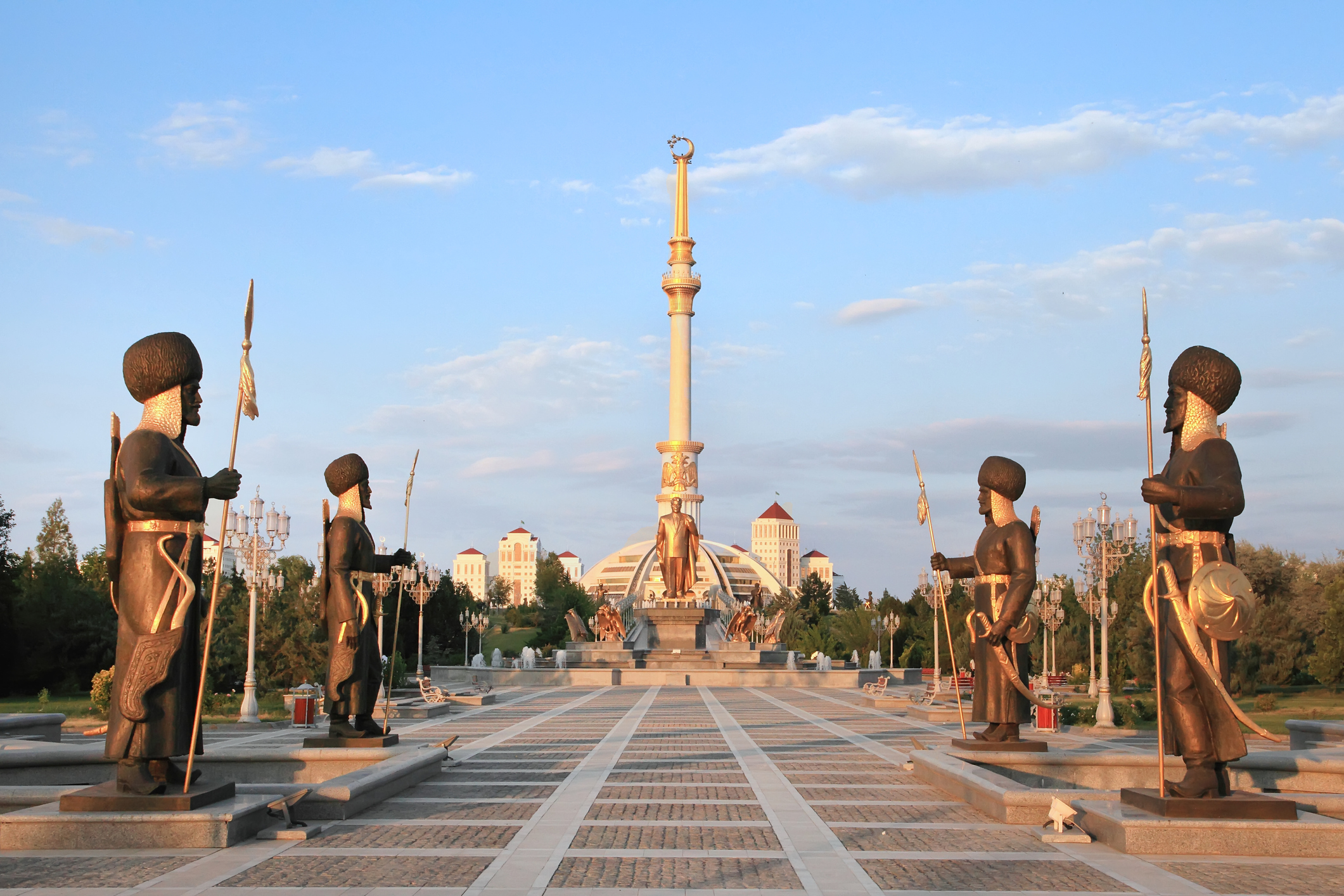
Monumen Arch of Independence in sunset. Ashkhabat, Turkmenistan.
It’s not clear when exactly Turkmenistan first featured in the record book, but they have been awarded regularly over the last fifteen years. Early accolades included tallest flagpole in the world (since overtaken by a series of other dictatorships) and highest number of fountain pools in a public space – Ashgabat Fountain consists of 27 “synchronised and fully-programmable” individual fountains.
In 2011 Turkmenistan was awarded the crown for the largest architectural star. Made from glass, the eight-point star has an area of 34,875 square feet, and is built into the façade of the gargantuan, 692 foot national broadcasting centre.
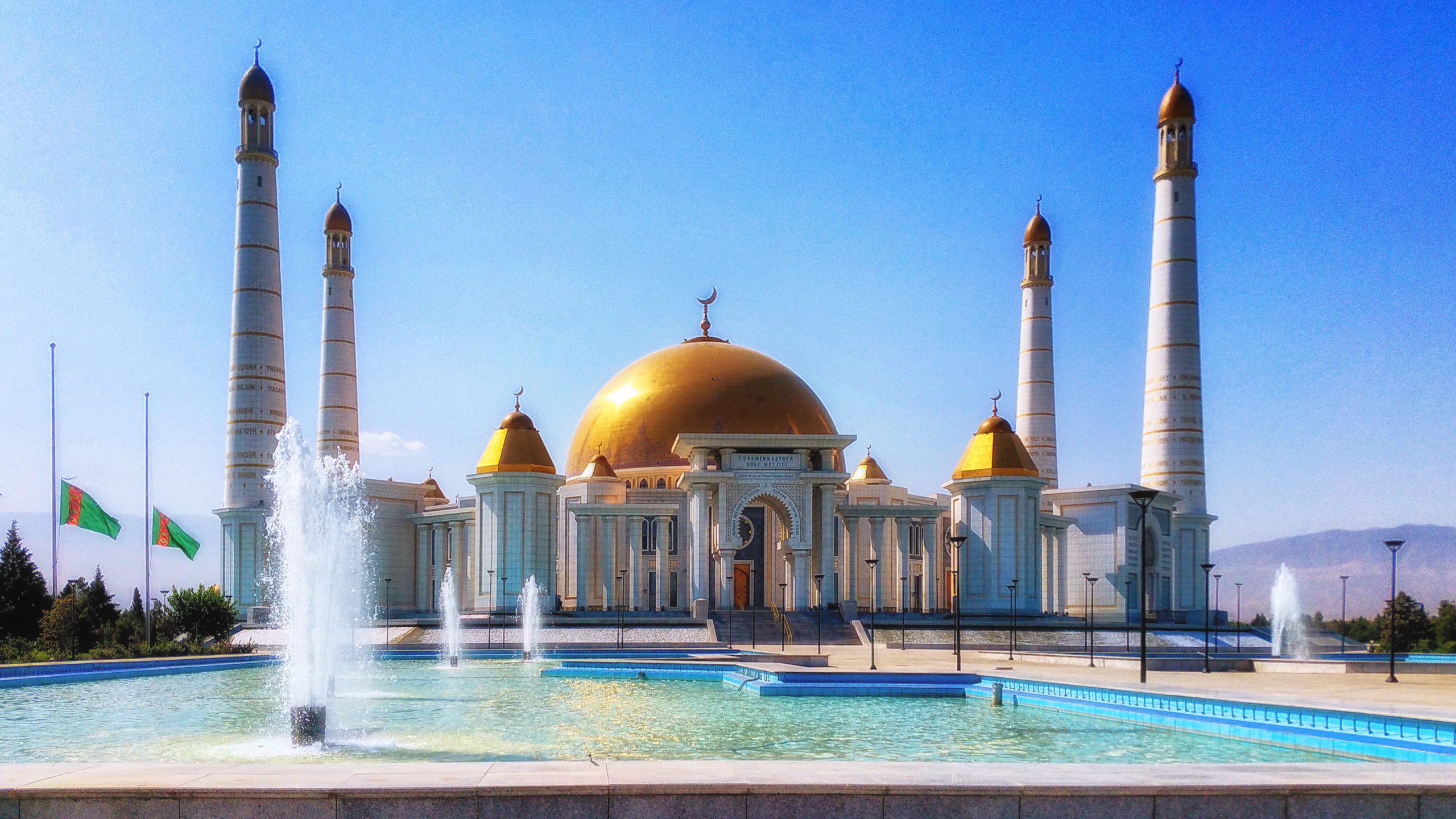
2013 saw what is likely the nation’s most famous Guinness World Record, as Ashgabat was recognised for the “highest concentration of white marble buildings in the world” – 543 in a 4.5 square mile radius. The country was also awarded the prize for the largest indoor ferris wheel in the world. Standing at over 47 metres, it cost a reported £57 million to build.
More recently, niche awards include: “record number of cyclists cycling in a straight line” (2,019 of them cycled 3,300 metres), “the world’s first plant for the production of gasoline from natural gas”, and “largest lesson of ecology”. Turkmenistan also holds the record for most people singing in the round, when a choir of some 4,166 gathered to sing ‘Forward Only Forward, My Dear Country Turkmenistan’.
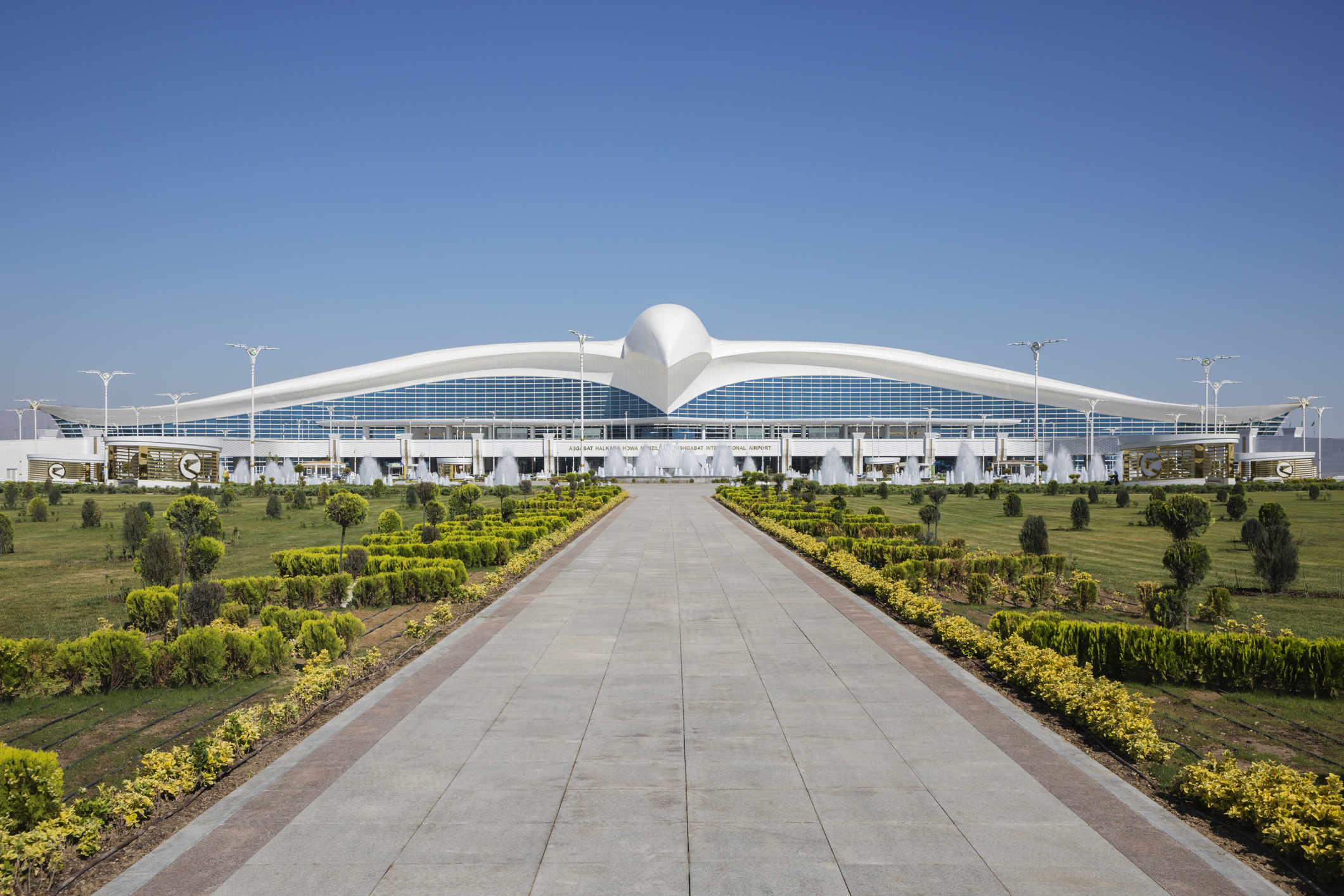
Ashgabat International Airport, which reportedly sees 10 per cent of its footfall capacity.
That rousing tune was penned by Gurbanguly Berdymukhamedov, Turkmenistan’s former president (his son now holds the title), and current chairman of the People’s Council of Turkmenistan, Gurbanguly Berdimuhamedow. Believe it or not, the council became Turkmenistan’s top governing body earlier this year, meaning Berdimuhamedow is still very much in charge and he has largely overseen the country’s record-chasing attempts.
Dictators have been known to enjoy rather more sinister penchants than collecting Guinness World Records. It doesn’t matter that the beautification campaign drove people into tiny apartments on the edge of Ashgabat, nor that the big ole fountain uses inordinate amounts of water in a country where water is scarce; forget the fact that all these empty buildings and statues came at tremendous cost to a poor populous, and ignore that this whole Guinness World Record charade is effectively just a way to wash Berdimuhamedow’s regime’s reputation, spinning it as prosperity both home and abroad. Where the Qataris, Saudis and Russians use sports to gain influence, Berdimuhamedow opted to – in between making dissidents vanish – chase world records.
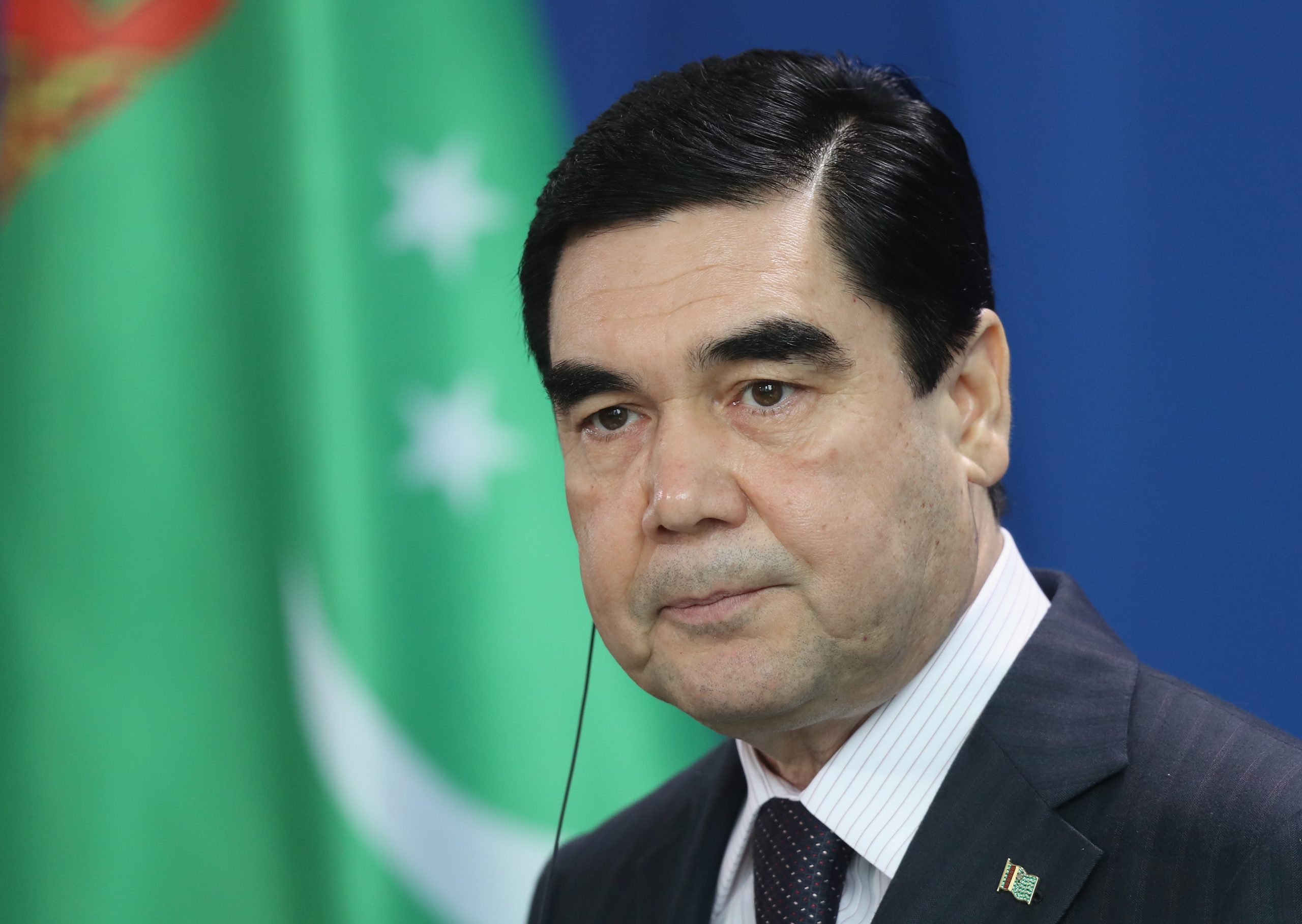
Gurbanguly Berdymukhamedov (Photo by Sean Gallup/Getty Images)
And in the Guinness World Records, he found a willing playing partner – an organisation seemingly as happy to take Berdimuhamedow’s money as he was to give it away. “On behalf of Guinness World Records,” they wrote after acknowledging that massive star, “congratulations to President Gurbanguly Berdimuhamedow, and the people of Turkmenistan for their record-setting achievement, and best wishes for future growth and prosperity.”
It’s nice to see the people of Turkmenistan get a mention. It was a real team effort, after all. No doubt a giant star was exactly what the masses were after, and they communally decided to drop £57 milly on a ferris wheel.
While few entities have spent as much as Turkmenistan on world records, the entire Guinness World Records institution now operates on a similar business model. Awards need to be a mutually beneficial exercise. Whether or not the record holds any value – comedic, athletic, physical, etc. – is less important than the money coming in. Priority applications, which Guinness World Records stress “is a worthwhile investment”, cost £500 to start, and then an additional £350 for priority review. If you want a Guinness World Record adjudicator to come and see you in person, that will set you back even more.
Read More: THE ABSOLUTE STATE OF…
This new strategy came in the early 2000s, with physical book sales declining and consumers shifting to the internet for their information – particularly for quirky, fun, trivial information that the Guinness World Records specialise in. It is also a product of there being a finite number of interesting records, and many of them going in the early days.
Yet instead of fine-tuning what they do well and taking this product online, Guinness World Records have widened their lens, became short-sighted, and have lost authority as a result. Turkmenistan is just a more expensive, extreme and sadly more corrupt example of what is happening across the board.
The childhood excitement and admiration of the Guinness World Records is gone. Chances are, it won’t come back.

